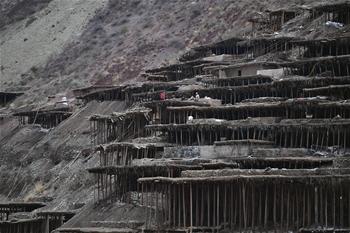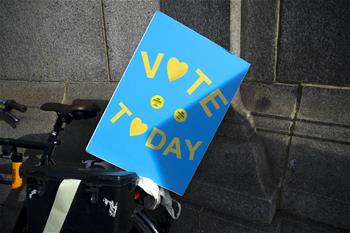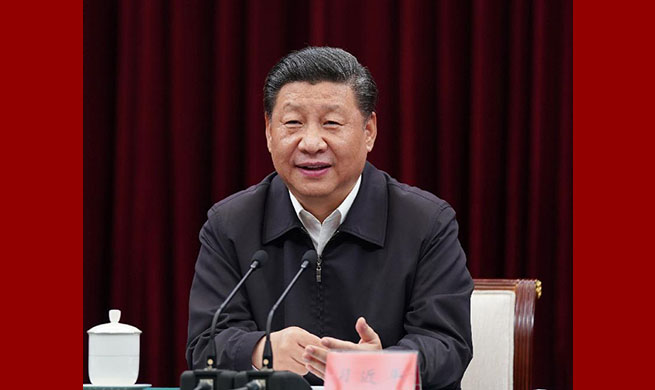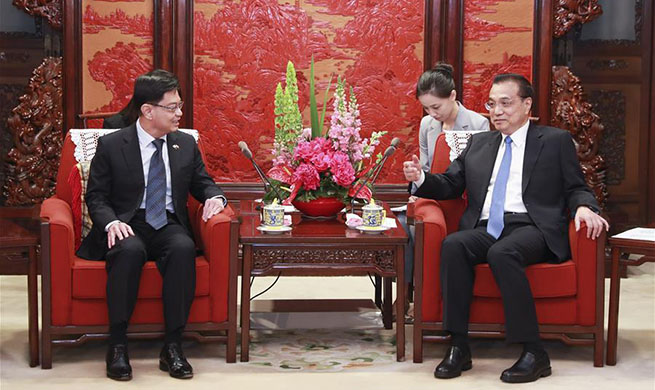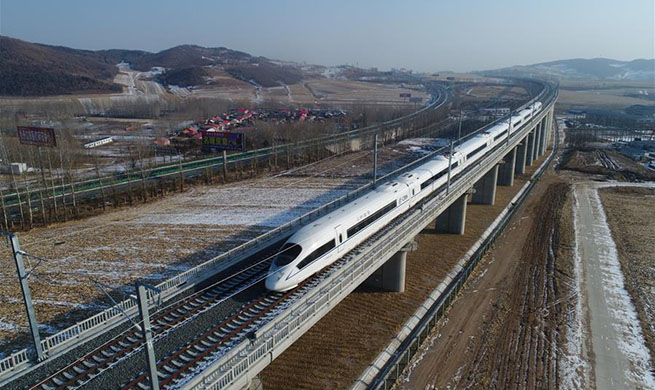WARSAW, May 23 (Xinhua) -- With just a few days left before voters go to polls on Sunday, the main political forces in Poland, governing Law and Justice party (PiS) and opposition alliance European Coalition (KE), are neck in neck in voters' preferences.
For Poland, the European Parliament elections are primarily a preview for this fall's general elections and next year's presidential ones. The real stake is whether PiS stays on in power for another mandate.
PIS SUPPORT HIGH
Attendance to these European Parliament elections is expected to be atypically high (as much as 40-50 percent of voters have declared they intend to vote) -- precisely because voters know that whoever wins on Sunday has better chances of governing Poland after the general elections.
Five political forces vie for the 51 Polish seats in the European Parliament: main rivals PiS and KE -- a coalition made up of Civic Platform (PO) and four other parties; newcomer social-democrats from Wiosna (Spring); far-right alliance Konfederacja (Confederation); and anti-establishment Kukiz' 15.
Governing PiS, whose support rates remained high after taking power, have campaigned on a characteristic mix of pro-social measures and defense of conservative values.
In February, party leader Jaroslaw Kaczynski announced the expansion of PiS signature program 500+, subsidies for families with multiple children, to single-child households.
Kaczynski also promised to defend the "natural family", based on marriage between a man and a woman, in front of attempts by the opposition to expand gay rights.
PiS has suggested that civil partnership and marriage for gay couples would be followed by adoption by gay parents, which they claim is detrimental to children.
The topic resonates with PiS core voters. "PiS favor the traditional model of family based on marriage between a man and a woman. I am not against gay relations but I am against promoting them as a model for the family, the way PO, the main opposition party, does," Witold Lewicki, a 45-year old financial analyst from Warsaw who says to vote for PiS on Sunday, told Xinhua.
Most polls put PiS and PO at 2-3 percent apart, which means anyone could win on Sunday.
UNITED OPPOSITION
The main factor behind the opposition's strong standing is the fact that Grzegorz Schetyna, the PO leader, managed to unite five parties including agrarians, social-democrats and greens, in an anti-PiS coalition.
"The main criticism against Schetyna has always been his lack of charisma... but Schetyna effectively silenced his critics when he forged the European Coalition, the only political project with any shot of defeating PiS," political commentator Slawomir Sierakowski wrote on Project Syndicate.
KE depicts itself as the defender of Poland's European future and of democracy, while criticizing PiS for turning authoritarian and antagonising Brussels.
Poland has been embroiled in a conflict with Brussels over laws to reform the judiciary which PiS passed after coming to power in 2015. In 2017, the European Commission triggered the Article 7 procedure against Poland, arguing the PiS reforms put the country's justice system "under the political control of the ruling majority".
"Democracy is under attack in Poland and we have to defend it. These European Parliament elections are very important for the future of our country. We have to choose the party that can stop PiS and guarantee a European future for Poland," 57-year old Ewa Rycka, an accountant from Warsaw who plans to vote for KE candidates on Sunday, told Xinhua.
European Council President Donald Tusk, a former PO leader and prime minister of Poland, threw his weight behind KE in the last weeks before the elections. He gave a much-publicized speech at Warsaw University earlier this month, in which he indirectly criticized PiS for breaking the Polish Constitution. He also took part in May in a pro-European march organized by KE in Warsaw.
Tusk, who is both very popular and very divisive in Poland, is widely rumoured to return to national politics this fall, when his Brussels term ends. He is thought to be considering running for presidency next year, potentially representing an anti-PiS alliance.
"If the fall elections are a battle for everything, these European Parliament elections are a battle for almost everything. On their result depends especially if the united opposition endures and if PiS has to confront the spectrum of losing power. Never before have European elections carried so much political weight," political commentator Andrzej Stankiewicz wrote on onet.pl.
"Kaczynski realizes that if he loses the European elections, even by a minimal margin, PiS will lose the role of dominant party on the political scene. This may add wind to the sails of the opposition and its voters, and then PiS losing in the fall elections will become more likely," Stankiewicz said.
